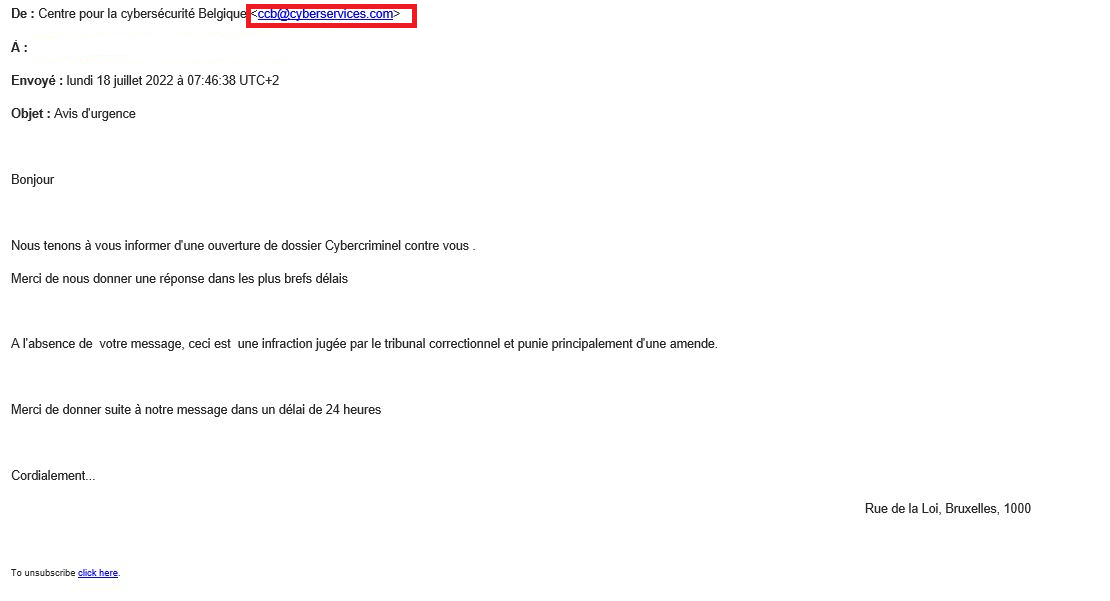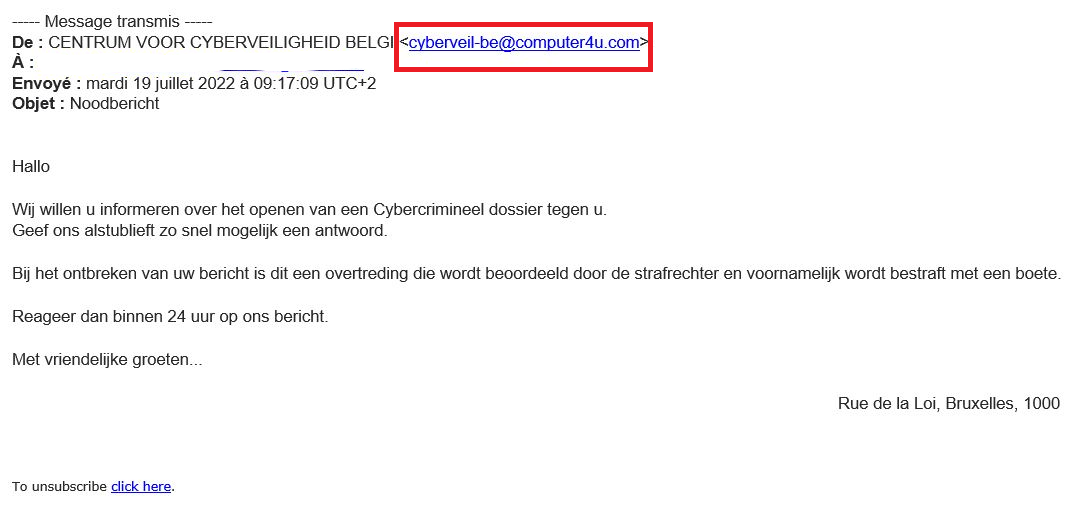In recent days, we have received several reports of people receiving a suspicious e-mail that seems to come from the Centre for Cybersecurity Belgium (CCB). Allegedly, a 'cyber criminal' file has been opened in your name and you are urged to respond urgently. Do not do this under any circumstances. This message is an attempted scam.
The message is very poorly written and lacks credibility. It is not sent from an e-mail address of the Centre for Cybersecurity Belgium (which end in @ccb.belgium.be). By the way, the CCB never opens 'files' because it doesn't have that authority.
Did you also receive this message?
- Do not answer in any case
- Do not click on the link in the message
- Forward the e-mail to suspicious@safeonweb.be and to info@safeonweb.be
- Delete the message


Learn to identify fake e-mails.
Take the phishing test now and don’t be caught out ever again!
What to do?
- Do not click on a link in a suspicious message, do not open attachments and do not download applications if you are asked to.
- Suspicious emails can be forwarded to suspicious@safeonweb.be.
- Suspicious text messages can also be forwarded. Take a screenshot and send it to suspicious@safeonweb.be. The content is then processed automatically.
Did you click on a suspicious link?
- If you have clicked on the link, do not complete the fields and terminate any interaction.
- NEVER give out personal codes.
- If you have entered a password that you also use elsewhere, change it immediately.
Have you been scammed?
- If you have lost money or are being extorted, we recommend that you file a report with your local police straight away.
- Contact your bank and/or Card Stop on 078 170 170 (+32 78 170 170 from abroad) if you have passed on bank details, money is disappearing from your bank account or if you have transferred money to a scammer. In this way, any fraudulent transactions can be blocked.

